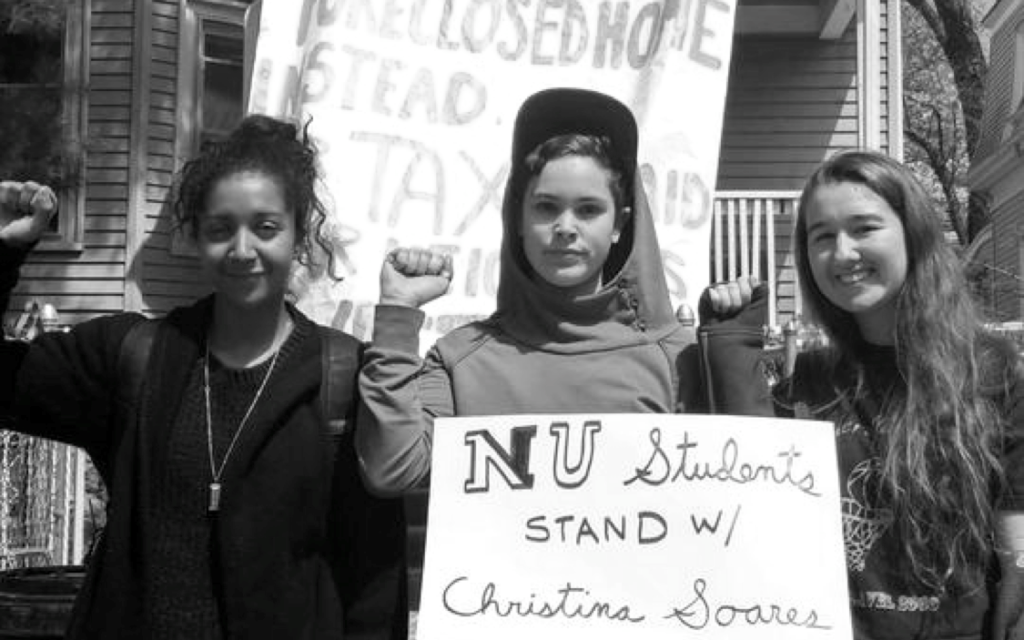Photo: Members of the Progressive Student Alliance attend a City Life / Vida Urbana rally in Dorchester to protest the eviction of longtime homeowner Christina Soares
The millions of dollars recently committed to affordable housing in Massachusetts is a response to the crisis this state is experiencing. The cost of living in Massachusetts is amongst the highest in the country. Boston is one of the most rapidly gentrifying cities in the US. The wait list for public housing can be up to six years. Our homeless population is increasing faster than that of any other state in the country.
This is why people who used to live in Boston are moving to places like Lynn and Brockton, where rent is cheaper. Look at East Boston, Winter Hill in Somerville and Chinatown: locals are moving out. Whole Foods just built its flagship store in Chinatown with a spa inside and luxury condos on top. The City of Boston continues to subsidize the lucrative business of luxury condo development, and the NoBoston2024 campaign actually brought issues of private deals and agreements between city government and developers to light.
Northeastern’s $40,000 per year tuition prevents many low-income students from attending. In this way we are very different from public schools like Bunker Hill Community College, Roxbury Community College and The University of Massachusetts Boston.
In fact, Northeastern is directly responsible for gentrification in Mission Hill, Dudley Square and the Fenway neighborhoods. This is not the students’ fault. We have a right to education, and we also need a place to live, but Northeastern does not have the infrastructure to house all its students on campus, and it certainly does not provide affordable options. So, we are forced to look to the surrounding neighborhoods, and students are often able to pay higher rents than families and the elderly can. Landlords take advantage of this fact to increase rent, affecting the poorest tenants the most.
Northeastern cannot expand without also gentrifying. It has chosen to abandon its roots as a working-class commuter school to pursue higher rankings and prestige. Today’s NU students are far wealthier than our neighbors. In recent years, Northeastern has built multiple dorms encroaching on Roxbury, the very cheapest rooms (an “Economy Triple Apartment”) going for $3,355 per four-month semester. A massive new science technology, engineering and mathematics (STEM) center is under construction right now. Meanwhile, local residents face rising costs of living.
In fact, one of the only places nearby where rent is not increasing is in Dudley Neighbors, Inc.– a community land trust that acquired empty lots through eminent domain and built perpetual affordable housing on them. If the City of Boston really wants to end displacement through gentrification, it should direct its millions to a model of community-autonomous affordable housing instead of contracting the work to private developers.
Finally, Northeastern must stop its steady expansion and focus first on making campus housing – within the existing footprint–available and affordable to all students.
Advice for students:
-Students must demand affordable on-campus housing.
-If you are living off-campus, learn your rights as a tenant.
-Link up with City Life / Vida Urbana and Dudley Street Neighborhood Initiative, two grassroots organizations that are at the forefront of the affordable housing movement in Boston.
–Steffi Klosterman is a senior political science major and member of the Progressive Student Alliance
Photo Courtesy Steffi Klosterman









